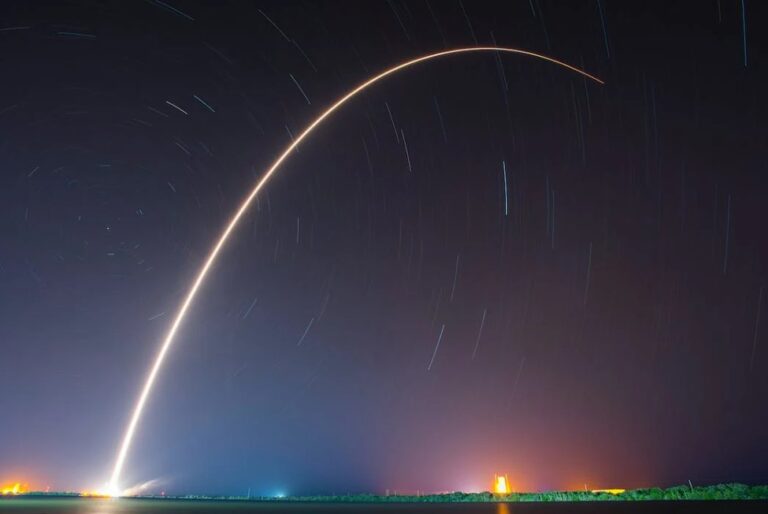On Oct. 6, a United Launch Alliance Atlas 5 rocket lifted off from Cape Canaveral with the two Kuiper network prototypes on board. Amazon Kuiper project has authorization to launch 3,236 satellites to be placed in low Earth orbit to form a constellation designed to provide Internet access even in remote locations.
The company has promised to invest $10 billion in the project, aiming to catch up with SpaceX’s fast-growing Starlink network, which already offers Internet services to thousands of customers in dozens of countries.
Unlike Starlink, Amazon’s network is not yet operational. With this mission, the Jeff Bezos-founded company aims to test the first technological devices before starting to deploy production satellites in 2024 for its network. Which will compete with Starlink, OneWeb and other satellite constellations.
Full details.
Table of Contents
The launch with ULA
United Launch Alliance (Ula), the Boeing-Lockheed joint venture, launched via Atlas 5 rocket the two small satellites KuiperSat-1 and KuiperSat-2. Amazon later said that the two satellites had been deployed and that its mission operations center had made contact with them.
Speaking of the launch company, in early September an Amazon shareholder filed a lawsuit against company founder Jeff Bezos and his board of directors for allegedly exercising bad judgment and not acting in good faith in selecting launch suppliers for Project Kuiper.
To launch the Kuiper satellites, in April 2022 Amazon signed contracts for 38 launches with Ula. 18 launches with the European company Arianespace. And lastly 12 launches with Blue Origin, with an option for as many as 15 additional launches with the private company owned by Amazon founder Jeff Bezos.
So Amazon has been careful not to discard as a launch provider for its Kuiper satellites rival SpaceX, a leader in rocket launches.
Amazon’s first two satellites in orbit
Returning to the first two satellites launched by Amazon, these prototypes will test the necessary technology.
In the days leading up to the launch, the company divulged few details about the two satellites, built at its satellite facility in Redmond, Washington.
Amazon launched Project Kuiper in 2019, hoping to use satellites in low Earth orbit to increase access to high-speed, low-latency broadband in areas that currently lack reliable Internet connectivity. Amazon operates a research and development center for the project in Redmond and last year announced plans for a manufacturing facility in Kirkland to fabricate the satellites.
In July, on the other hand, the Seattle-based giant founded by Jeff Bezos announced that it will invest $120 million in a Kuiper satellite launch readiness facility at Nasa’s Kennedy Space Center in Florida.
With the first prototype Internet satellites launched into space, the company expects to offer the first commercial tests shortly thereafter.
Amazon’s satellite Internet unit will begin mass production of the satellites by the end of the year and aims to launch two prototype satellites “in the coming months.” The 2024 deployment goal would keep Amazon on track to meet the FCC’s regulatory mandate to launch half of its entire Kuiper network of 3,236 satellites by 2026.
Competition with Starlink and beyond
Thus Bezos with the Amazon Kuiper project is positioning himself to compete with Starlink, which currently makes SpaceX the world’s largest satellite operator.
Amazon’s other rivals include Canada’s Telesat, which has not yet launched satellites. And OneWeb, which has built a network of 620 satellites now owned by French satellite company Eutelsat, which offers its Internet service primarily to governments and businesses.
The list of would-be players in the industry continues to grow with similar projects also announced in the EU and China, as well as proposals from other U.S. companies.
Read also: China challenges Elon Musk’s Starlink: ready to launch 13,000 satellites












